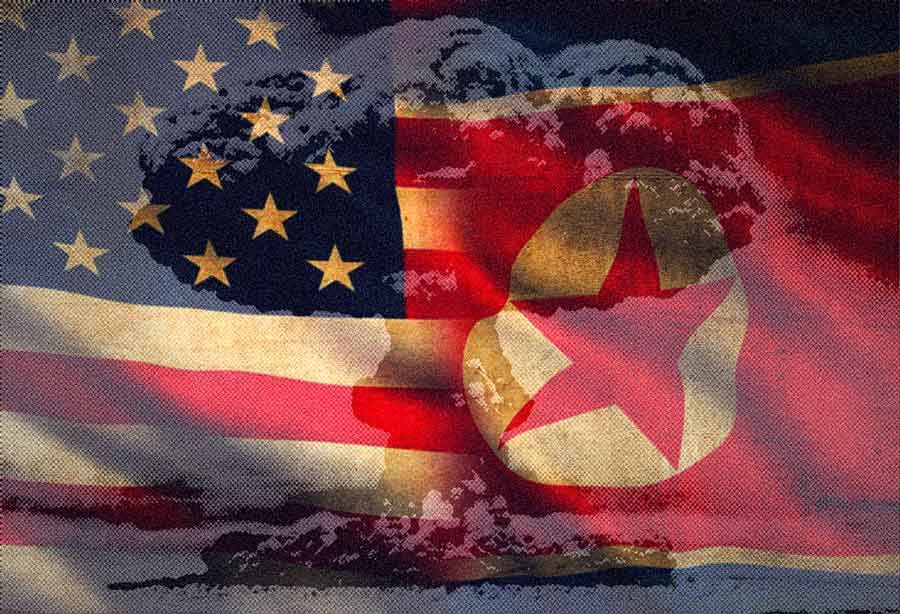So far, North Korea is failing to live up to 2018 predictions
By Dawn Stover | January 2, 2018
 North Korea Standoff
North Korea Standoff
Politicians and pundits alike seem to agree that 2018 will be the year that “something finally gives” on North Korea. But what?
American experts issued dire predictions as 2017 drew to a close. Admiral Mike Mullen, former chairman of the Joint Chiefs of Staff, warned that the United States is “closer to a nuclear war with North Korea” than ever. Former CIA director John Brennan put the chance of war breaking out at 20 to 25 percent. Republican Senator Lindsey Graham of South Carolina estimated a 30 percent chance that President Trump will attack North Korea (but 70 percent if North Korea tests another nuclear bomb). Richard Haass, the president of the Council on Foreign Relations, and Mark Fitzpatrick, executive director of the global security think tank International Institute for Strategic Studies (IISS) Americas, both put the odds of a war involving North Korea closer to 50/50.
Even if a North Korean war didn’t turn nuclear, it would be extremely costly in both lives and money. A November 2017 report by the Congressional Research Service conservatively estimates that, within a few hours of war breaking out, there would be tens of thousands of casualties in South Korea, home to at least 100,000 US soldiers and citizens. An escalated conflict could affect more than 25 million people.
South Korea made its own, decidedly more upbeat, prediction for 2018: that North Korea would explore the possibility of negotiations with the United States. That hasn’t happened.
Instead, North Korea did something that defied expectations, making an overture not to the United States but rather to South Korea. Although North Korean leader Kim Jong-un’s New Year’s Day address included the warning that “a nuclear button is always on my desk,” it also included a proposal for talks to “ease the acute military tensions between the North and the South,” and to discuss North Korea’s possible participation in next month’s Winter Olympics—which will be held in PyeongChang, South Korea. South Korea responded by inviting its northern neighbor to high-level talks on the border next week.
For his part, Trump tweeted that “Rocket man now wants to talk to South Korea for the first time. Perhaps that is good news, perhaps not—we will see!” Leaving aside Trump’s habitual disregard for factual accuracy (it has only been two years since the two Koreas last had official talks), the news may indeed be good. At the very least, it should force the oddsmakers to reconsider their predictions for the coming year.
Publication Name: New York Times
To read what we're reading, click here
Together, we make the world safer.
The Bulletin elevates expert voices above the noise. But as an independent nonprofit organization, our operations depend on the support of readers like you. Help us continue to deliver quality journalism that holds leaders accountable. Your support of our work at any level is important. In return, we promise our coverage will be understandable, influential, vigilant, solution-oriented, and fair-minded. Together we can make a difference.
Topics: Nuclear Weapons, What We’re Reading














